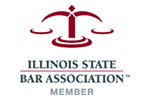800.825.9260
Eavesdropping Laws in the Workplace
The question of when an employer can monitor the telephone conversations of employees bears further review in light of recent legislation.
Under Illinois Law it is a crime for anyone to listen in (eavesdrop) on the telephone conversations of others or to tape a conversation without the consent of the participants or without a court order.
Nevertheless, many employers have been monitoring the telephone calls of their employees. There may be several justifications for this type of monitoring such as quality control or preservation of trade secrets. Previously, Illinois eavesdropping laws were so vague that the laws did not even define what type of monitoring was permitted. There were claims by union officials that these laws took away the privacy rights of all working men and women. These laws allowed employers to eavesdrop on employee telephone conversations, private conversations, and computer e-mail. Monitoring was not defined in the old law and this could allow employees to secretly tape their conversations with their colleagues or even hidden video cameras. Employees could have been passed over for promotion or even fired based on the information obtained in this monitoring.
Recently, the Illinois Legislature has approved an effort to narrow the circumstances under which an employer may monitor a worker’s telephone calls. The law passed by the legislature limits the monitoring of employee telephone conversations to firms engaged in marketing or opinion research and telephone solicitation. One party to the conversation would have to approve the monitoring, and the firm’s prospective and current employees would have to be told up front that their conversations may be monitored. Monitoring would be permitted only for service quality control, education, or training. The employers must also provide access to personal call only telephone lines that would not be subject to any monitoring.
Employers should carefully consider the justifications of monitoring their employees telephone calls before engaging in such activity. The law offices of Bellas & Wachowski Attorneys at Law can help you assess the situation and help you evaluate the consequences of monitoring your employees’ telephone conversations. Contact George Bellas at 847.823.9030 Ext: 219 or george@bellas-wachowski.com for more information about this and other business issues unique to the small business owner.










